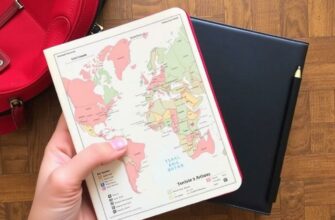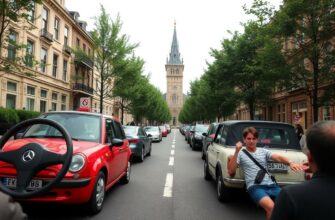Traveling can be one of the most exciting and enriching experiences in life. Whether it’s a weekend getaway, a month-long adventure abroad, or a spontaneous road trip, the thrill of exploring new places, meeting different people, and stepping out of your everyday routine can leave you feeling alive and inspired. However, once the trip is over and you return home, many travelers find themselves grappling with an unexpected and unwelcome companion: post-travel depression. This emotional state, which some describe as a feeling of sadness or emptiness after returning from a vacation or journey, can make it difficult to re-adjust to regular life. In this article, we will explore what post-travel depression is, why it happens, and most importantly, practical ways of dealing with post-travel depression effectively so that your return home is just as joyful as your time away.
What is Post-Travel Depression?
Post-travel depression is not a clinical diagnosis but rather a widely recognized emotional experience that happens after the excitement and novelty of traveling fades. When people talk about feeling “post-travel blues,” they’re describing a sense of melancholy, lack of motivation, fatigue, or even anxiety that can hit after returning from a trip. It often feels like a sudden drop from a high point back to the mundane, which can be jarring. You might find yourself missing the sense of adventure you had, feeling lonely despite being surrounded by people, or struggling with dissatisfaction with your everyday life.
It’s important to understand that post-travel depression affects people differently. Some may experience mild sadness and a fleeting sense of loss, while others may feel more intense emotions that interfere with daily life. The good news? There are many ways to cope and ease this difficult transition.
Why Does Post-Travel Depression Happen?
There are several reasons why you might feel down after your trip. One common cause is the abrupt change in environment. While traveling, your brain is constantly stimulated by new sights, cultures, tastes, and interactions. This constant novelty floods your brain with dopamine, the neurotransmitter associated with pleasure and reward. When you return to your normal routine, these stimuli disappear, often causing a feeling of emptiness or boredom.
Another factor is the disruption of routine. Many people travel to escape the stresses of work, social obligations, or personal challenges. Once back home, those stressors can hit harder because you’re no longer distracted by exploration and adventure. Sometimes, people also feel isolated if they had shared their travel experiences only with fellow travelers and not close friends or family.
Additionally, there’s the sense of unmet expectations. While travel is exciting, coming home can feel disappointing if your daily life doesn’t live up to the excitement of your trip. This contrast can deepen feelings of sadness or dissatisfaction.
Signs and Symptoms of Post-Travel Depression
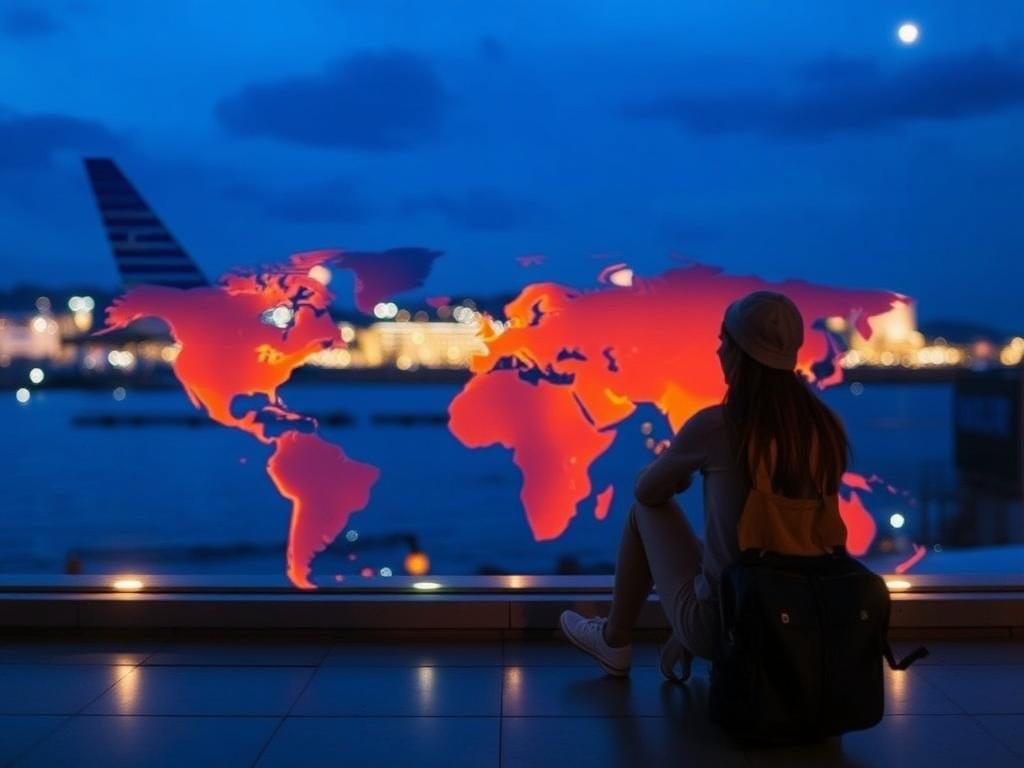
Recognizing that you might be experiencing post-travel depression is the first step toward managing it. Common signs include:
- Feeling restless, irritable, or moody
- Lack of motivation and difficulty concentrating
- Loss of appetite or overeating
- Fatigue or problems sleeping
- Feeling lonely or socially withdrawn
- Constantly reminiscing about your trip or feeling stuck in the past
- Feeling overwhelmed by everyday responsibilities
If these feelings persist for more than a few weeks or interfere with your ability to function, it might be worth consulting a mental health professional.
Proven Strategies for Dealing With Post-Travel Depression
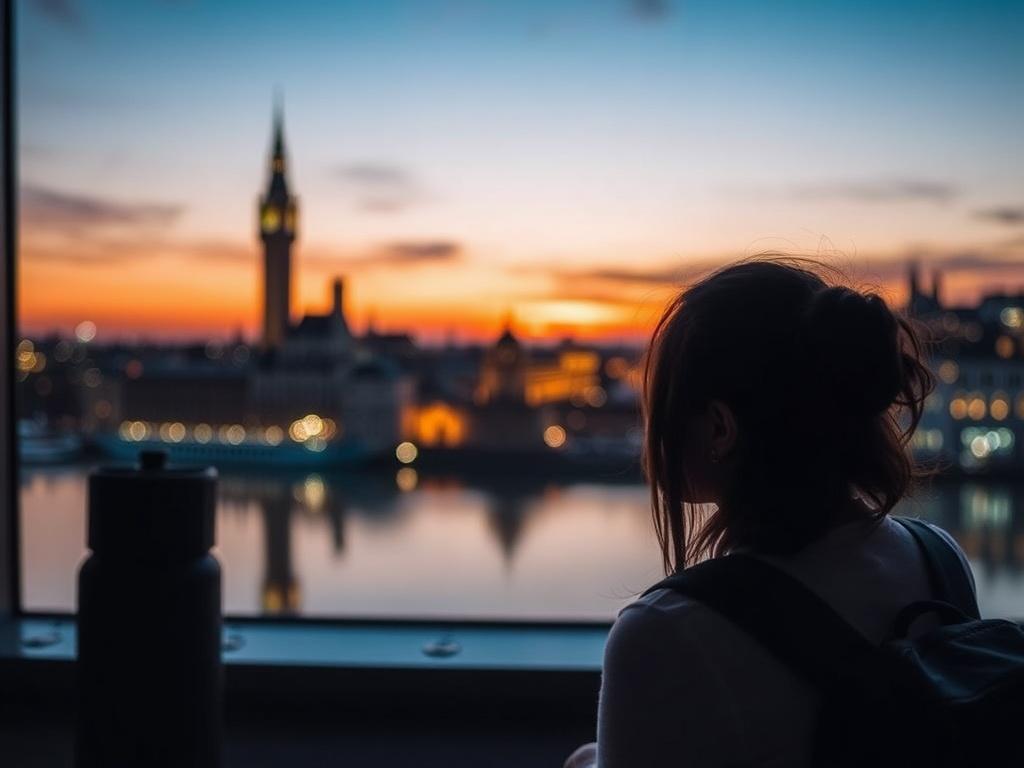
Although post-travel depression can feel overwhelming, there are practical approaches to help you recover smoothly. Here are some strategies that can make a big difference.
1. Reflect on Your Travel Experience
One of the best ways to reconnect with the positive feelings from your trip and turn that energy into something meaningful is to reflect on your journey. Try journaling about your adventures—what you saw, learned, and felt. Writing allows you to process your experiences more deeply and can be therapeutic.
You might also create a photo album or scrapbook. Putting together your travel souvenirs can rekindle happy memories and remind you that your journey remains a part of you.
2. Gradually Reintegrate Into Daily Life
Avoid jumping straight into stressful routines. Instead, give yourself time to acclimate by taking small steps. Plan relaxing activities that ease the transition, such as going for walks in nature, practicing mindfulness or meditation, or savoring your favorite homemade meals.
3. Stay Connected Socially
Reaching out to friends and family can help counter feelings of isolation. Share stories from your trip and involve others in your excitement. This not only helps you process your experience but also strengthens your relationships.
4. Channel Your Wanderlust
Instead of letting travel become a source of sadness, use it as inspiration. Look for local activities that satisfy your curiosity about culture, food, or history. Trying new restaurants, visiting museums, or signing up for language classes can give you a fresh sense of adventure, even at home.
5. Plan Your Next Trip
Having something to look forward to is one of the most effective ways of dealing with post-travel depression. It doesn’t have to be an expensive or elaborate vacation—anything from a weekend camping trip to a visit to a nearby city can reignite your passion for travel and uplift your mood.
Common Mistakes to Avoid When Coping With Post-Travel Depression
Sometimes, without realizing it, you might make choices that intensify your feelings of post-travel depression. Here are some common pitfalls and how to avoid them:
| Mistake | Why It’s Harmful | Better Alternative |
|---|---|---|
| Isolating yourself | Leads to increased loneliness and sadness | Reach out to friends, family, or travel communities to share experiences |
| Dwelling too much on travel memories | Can cause you to feel “stuck” in the past and prevent moving forward | Reflect positively but balance with future goals and present activities |
| Jumping back into stressful work or responsibilities immediately | Can heighten stress and overwhelm, worsening mood | Take a day or two to rest and reorient before full work engagement |
| Neglecting self-care because you feel low | Poor sleep, nutrition, and exercise can deepen depression | Maintain healthy habits even in tough emotional moments |
The Role of Self-Care in Recovery
Self-care is crucial when dealing with post-travel depression. It’s important not just to recognize your feelings but to actively nurture yourself physically and mentally. Here’s a brief list of recommended self-care practices you can incorporate daily:
- Regular physical activity such as walking, yoga, or dancing
- Balanced nutrition—eat foods that nourish your body and mood
- Establish a relaxing nighttime routine to improve sleep quality
- Practice mindfulness or meditation for emotional balance
- Limit alcohol and caffeine as they can affect mood and sleep
- Set aside “me time” to enjoy hobbies or activities you love
Ensuring that your body feels good can have a profound impact on your mental well-being and help ease the emotional discomfort of post-travel blues.
When to Seek Professional Help
While most people experience some degree of post-travel sadness, sometimes these feelings signal something deeper. If you recognize any of the following, it’s advisable to seek professional support:
- Persistent sadness lasting more than two weeks
- Loss of interest in activities you once enjoyed
- Changes in sleep patterns or appetite that are severe
- Difficulty concentrating or functioning at work or school
- Thoughts of self-harm or suicide
Licensed therapists or counselors can offer tools such as cognitive behavioral therapy (CBT) and other coping strategies tailored to your needs, helping you regain your emotional balance.
Tips for Preventing Post-Travel Depression in Future Trips
Prevention is always better than cure, so consider integrating these tips into your travel planning to reduce the chance of post-travel depression affecting you again:
- Set realistic expectations: Understand that while travel refreshes, your daily life will also have value.
- Maintain some routine: Try to keep regular sleep and meal times even on vacation to ease the transition back.
- Create connections during travel: Meet locals or stay connected with loved ones to reduce isolation.
- Journal or blog during your trip: This habit helps process experiences in real time.
- Plan a gentle return: Give yourself a day or two before jumping back into work or busy schedules.
By being mindful of your emotional health before, during, and after travel, you can make your journeys smoother and more rewarding in every sense.
How Travel Can Actually Boost Your Mental Health
While post-travel depression can be discouraging, it’s worthwhile to remind yourself of the immense benefits travel offers. Exposure to different cultures and environments expands your perspective, builds resilience, and encourages creativity. Adventure challenges you out of your comfort zone, which can improve confidence and problem-solving skills.
Interacting with diverse people fosters empathy and social skills, while downtime during travel often enhances relaxation and reduces burnout. All these aspects contribute positively to mental health—so rather than focus only on the sadness after a trip, consider the long-term value travel adds to your well-being.
Practical Tools to Track and Manage Your Mood
Keeping an eye on how you feel after travel can help you catch post-travel depression early. Here are some tools and apps you might find helpful:
| Tool/App | Description | Benefit |
|---|---|---|
| Moodpath | A mental health assessment app that tracks mood and offers feedback | Identify depressive symptoms early and get resources |
| Daylio | A mood and activity tracker with journal features | Monitor patterns between activities and mood |
| Headspace | Meditation and mindfulness app for stress relief | Improve emotional resilience and reduce anxiety |
| Evernote | Note-taking app useful for journaling travel reflections | Organize thoughts and plan next steps |
Using these tools regularly can provide insights and support to help you feel more in control during your post-travel adjustment period.
Dealing With Post-Travel Depression in Different Age Groups
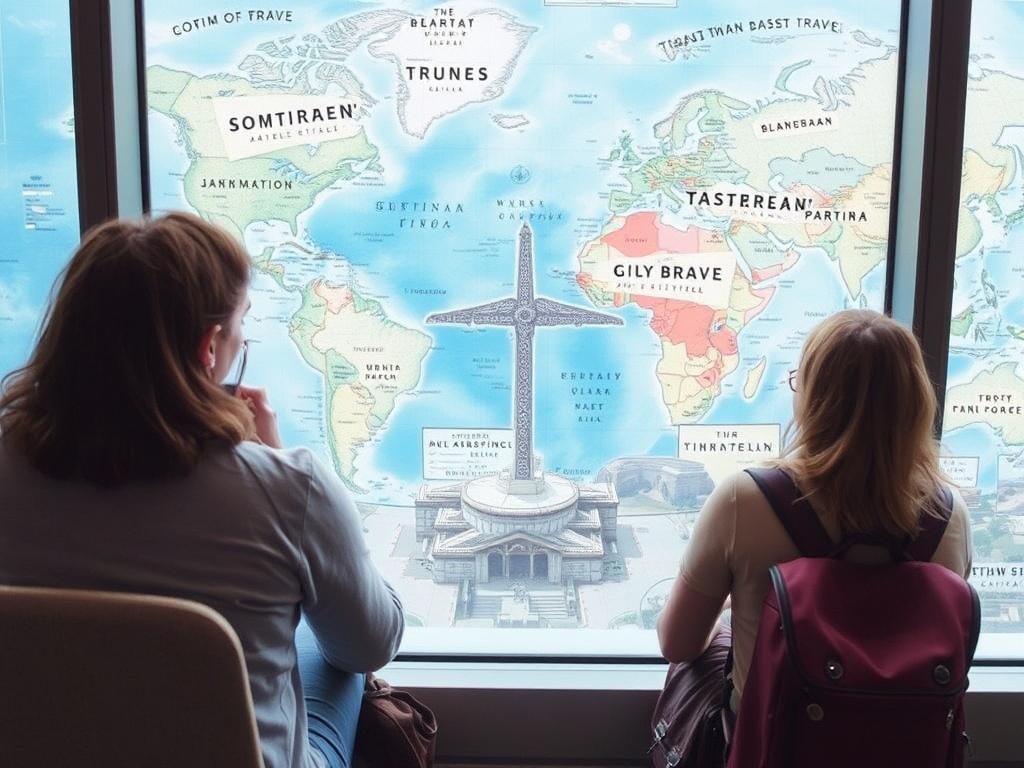
Post-travel depression doesn’t discriminate by age, but it may manifest differently depending on your life stage. Children, teens, young adults, middle-aged individuals, and seniors all experience this transition uniquely.
- Children: Younger kids may show moodiness, clinginess, or trouble sleeping after travel. Maintaining familiar routines and talking openly about their feelings helps.
- Teenagers: Teens might withdraw or express frustration. Encouraging social interaction and creative outlets like art or music aids coping.
- Young adults: Post-travel depression may link to career or identity stress. Engaging in purposeful activities and goal setting is helpful.
- Middle-aged adults: Balancing family and work can be a source of stress post-travel. Scheduling downtime and self-care is crucial.
- Seniors: Travel may bring new challenges physically or socially. Staying active and connected reduces feelings of isolation.
Adapting coping strategies to fit your age and lifestyle enhances their effectiveness.
Summary of Key Tips for Dealing With Post-Travel Depression
To wrap up the core ideas discussed, here’s a quick-reference list to keep handy:
- Allow yourself time to transition slowly from travel to routine
- Reflect on and cherish your travel memories without getting stuck
- Maintain social connections and share your experiences
- Engage in self-care practices including exercise, sleep, and nutrition
- Pursue local adventures and cultural activities post-travel
- Consider planning your next trip, big or small
- Avoid common mistakes like isolating or overworking immediately
- Seek professional help if symptoms persist or worsen
Conclusion
Post-travel depression can feel like an unexpected emotional hurdle, but it’s a common and manageable experience. By understanding why it happens and adopting deliberate strategies—like reflecting on your journey, easing back into routine, nurturing social connections, and practicing self-care—you can ease this transition and reimagine your return home as a new adventure in itself. Travel enriches your life in countless ways, and with the right approach, the post-trip period can be a time of growth rather than grief. Remember, your journey doesn’t have to end when you get back—it’s a chapter in an ongoing story, full of opportunities for new experiences, learning, and happiness.




